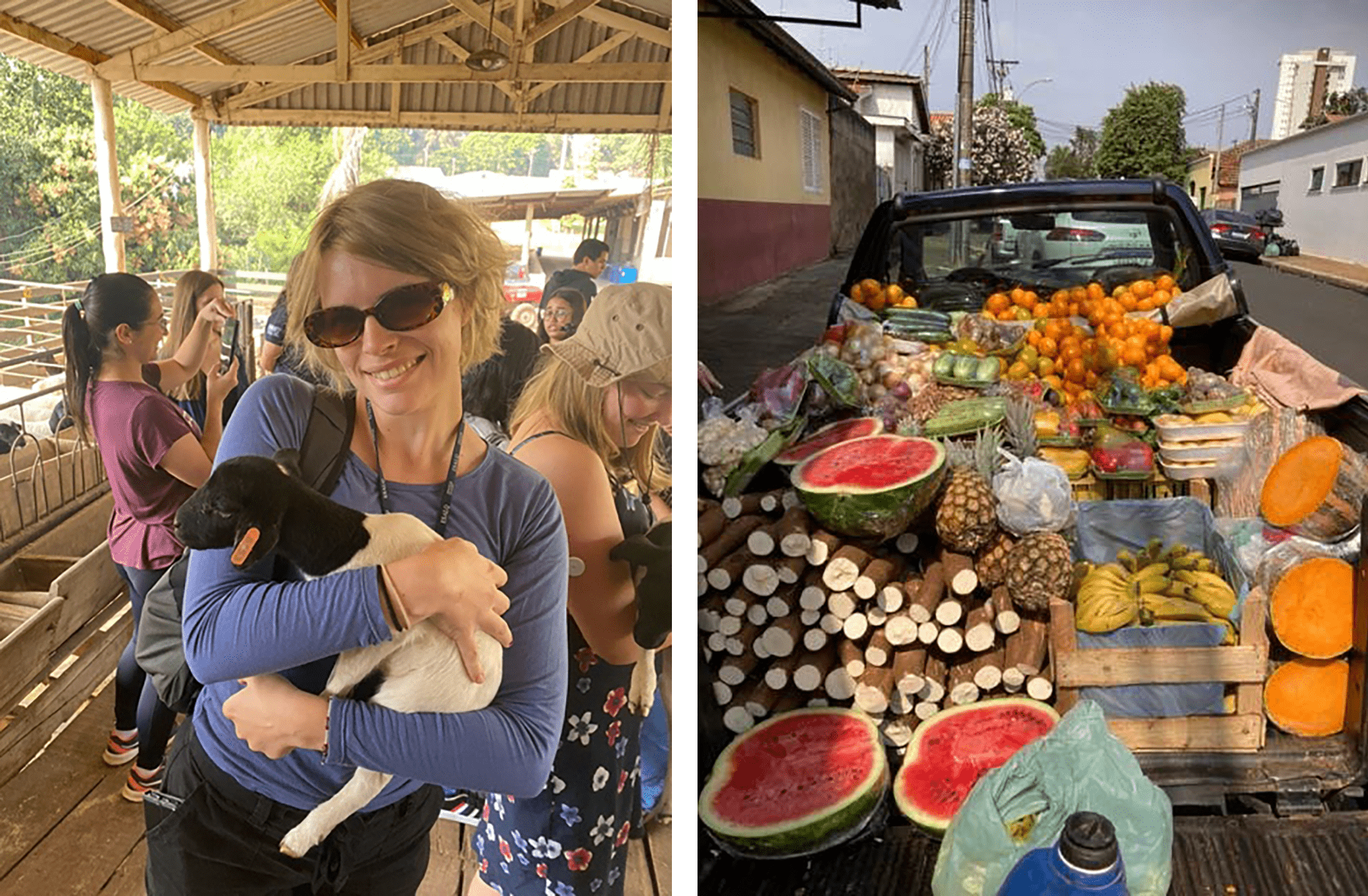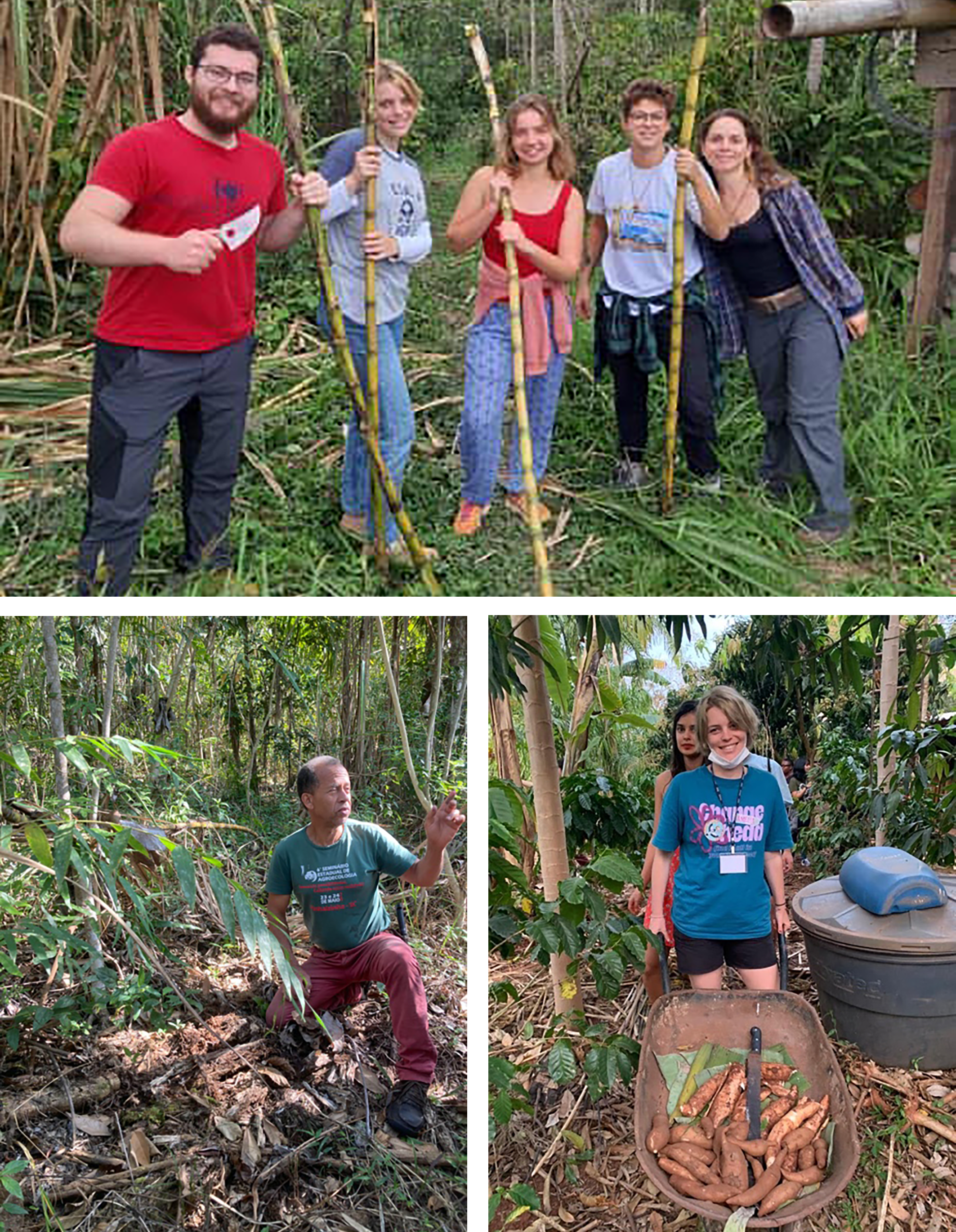

Sustainable management of multi-functional landscapes in Brazil
January 12, 2023

One way the Crawford Fund supports and encourages the next generation of Australians in study, careers and volunteering in international agricultural research is through our highly sought after Student Awards, funded by our State and Territory Committees and made possible by organisations including ACIAR, international centres, Australian and overseas universities and NGOs.
In 2022, we announced 14 tertiary students had won awards to gain international agricultural research experience and expertise. With the resumption of global travel, The Crawford Fund is excited to see many of the young NextGen Student Awardees travelling overseas to undertake projects. Amelia Hawkins from the University of Western Australia recently completed her research visit to Brazil where she was involved with a collaborative project with the International Centre for Tropical Agriculture (CIAT) and University of Sao Paulo (ESALQ). She shares her experience below.
Applications for our 2023 student awards are now open!
During her two-month internship in Brazil, Amelia was engaged in two separate projects, with two distinct objectives.
The first project was in collaboration with the International Centre for Tropical Agriculture/Biodiversity Alliance (CIAT), supporting their Catalysing and Learning through Private Sector Engagement (CAL-PSE) initiative. She developed a policy brief addressing the key gaps and opportunities in biodiversity conservation for private actors operating in the Brazilian Amazon. CIAT is developing a new biodiversity monitoring tool called TerraBio, and this research helps identify which private actors may be able to implement it for improved stewardship of biodiversity.
The second project she was involved in was called CANOPIES – Coexistence of Agriculture and Nature: Optimisation and Planning for Integration of Ecosystem Services. This was under the supervision of the Centre for Nuclear Agriculture (CENA) at the University of Sao Paulo. Her role was mapping soil organic carbon across different kinds of pasture systems and evaluating their alignment with Brazil’s national low-carbon agriculture strategy (Plano ABC+). This project is ongoing, and Amelia will use elements of this research for her Masters thesis.

“Although different in scope and requirements, these two projects ultimately both sought the same outcome: to achieve the sustainable management of multifunctional landscapes,” said Amelia.
“My Crawford Fund Student Award enabled me to engage directly in-person with project stakeholders, and to visit landscapes similar to that I was conducting research on. I think it is very important to see and understand the dynamics and multifunctionality of a landscape in-person, “said Amelia.
“I was able to visit a range of corporate farms, protected areas, agroforestry smallholdings, and restoration sites. These experiences had a huge impact in terms of shaping my understanding of the environment I was operating in and informed my critical analysis process.”
The problem of biodiversity loss in Brazil is well-known and there are many actors out there seeking to reverse or prevent this pattern, according to Amelia.
“My work with CIAT is one such effort, however with a slightly different approach. The CAL-PSE project recognises the underperformance of the public sector with regards to achieving biodiversity conservation goals and is trying to instead engage the private sector. This approach is applicable anywhere there exists a trade-off between agriculture and environmental protection.”
“This internship enabled me to develop a systems-thinking approach, and to understand a Theory of Change around biodiversity conservation. I gained exposure to a range of new ideas and strategies as well as contact with leading international researchers in this field.
Amelia also sees relevance from her research in an Australian context too where biodiversity loss is a significant issue and is clearly on the agenda nationally and internationally.
“The approach to private sector engagement detailed in my policy brief has also been endorsed in the Australian federal government’s latest State of the Environment report, where recommendations are made for public actors to create the required enabling environment to encourage private investment in conservation initiatives,” she said.
“My internship also enabled me to develop strong professional relationships with both Australian and Brazilian researchers who are engaged in work that is very much in my field of interest,” said Amelia.
The policy brief Amelia developed with CIAT is undergoing internal review. Her research with CENA-USP is still in progress on a remote basis and will hopefully be used as context for her thesis.
“I would like to extend my gratitude to Dr. Wendy Francesconi, my supervisor and mentor at CIAT for her kindness, patience and critical insights in guiding me through the project policy brief. I would also like to thank Dr. Vicky Ballester for having me in her department, and for guiding my research process with Dr. Rodnei Rizzo. Rodnei was a great mentor, and I would like to extend my thanks to him for welcoming me into the office and imparting his knowledge and understanding of various mapping tools. Lastly, I would like to thank the Crawford Fund for affording me the opportunity to undertake these projects in Brazil, and for creating a platform for students to pursue international agricultural research. I have been deeply inspired by the stories of the other awardees and look forward to following their research pursuits into the future,” concluded Amelia.




 0
0